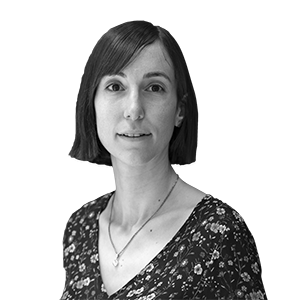"If we Africans want to come to Europe, it is only because we have been told for the last half millennium that it is a wonderful place."
Writer and filmmaker Tsitsi Dangarembga moves to Barcelona to promote a residency at the CCCB


BarcelonaThe professional and life career of the writer and filmmaker Tsisi Dangarembga (Mutoko, Zimbabwe, 1959) is characterized by conviction and persistence. "After 40 years of fighting, I now see where my beginnings led me and I realize that everything began with my body," says the artist, who is in Catalonia to occupy the residency of the Center of Contemporary Culture of Barcelona (CCCB). Dangarembga is one of the most recognized African voices in literature and cinema. He debuted in 1989 with Permanent denial (The Golden Needle), the first part of a trilogy that continues with The book of no (The Golden Needle) and ends with This cute body, which was shortlisted for the Booker Prize and has not been translated into Catalan. The activist was the first Zimbabwean woman to direct a feature film, Everybody's child (1996), and since then he has dedicated himself to breaking down many barriers in his country.
His great driving force in the struggle has been and continues to be the visibility of minorities. Dangarembga grew up during the Zimbabwean civil war. "In that context I was confronted with the lack of representation of people like me. I could read works by women with less melanin than me in their skin, men with more or less melanin than me, but not about women with my melanin," explains the activist. For many years he had the manuscript of Permanent denial The book was shelved because "the official narrative was only to value the armed struggle and strengthen the position of the people who had come to power," until a Rwandan friend encouraged her to submit the book to the British publisher Women Press. The editor, a South African man, had fled apartheid and "had had a similar experience, thanks to which he understood the book perfectly."
Dangarembga had already given up her career as a writer and had begun to study film in Berlin, but the publication of the book encouraged her to continue cultivating both arts at the same time. In Berlin she realized that "film had been used as an ethnographic tool" and that "people with more melanin were only used as a spectacle." That is why she has devoted all these years to opening cracks and achieving the representation of "people with XX chromosomes and more melanin" in film and literature. In Barcelona, her work will take the form of a cycle of African cinema with the screening of works by filmmakers Akuol de Mabior and Milisuthando Bongela that will take place on February 24 and 26 and April 4 and 5. In parallel, she will participate in seminars, meetings and conferences to share her work and thoughts.
The myth of independence
With four decades of struggle and creation behind him, Dangarembga continues to tirelessly point at the seams of the present moment. “Since the 15th century, Europe has extracted value from Africa and passed it on to us. If we Africans want to come to Europe it is only because over the last half millennium we have been told it was a wonderful place. Growing up on this myth has only brought us instability, and now this narrative is starting to become unsustainable.” The rise of the far right does not surprise him – “the global north has been presiding over these kinds of governments in Africa for half a century, it is not surprising that this is now coming back to Europe” – and he insists that the independence of African countries “is a myth”, because economically they depend on the north “and when someone says they will cut back”, he insists.
First of all, Dangarembga focuses on the new generations and the concept of the youth dividend, which "is becoming very popular in power circles" and which "the global north uses to continue the colonial order." The activist explains that, from the north, African youth "are not conceived as individuals with their own rights, but as production units" and regrets that investments are being made "with the aim of the profits eventually returning to the north."
